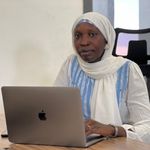

Matar Diouf, a young Senegalese man, recounts his difficult journey, marked by several attempts to enter Spain – from rough seas to aggressive checks by Moroccan police – which ended in his return home after quite traumatic experiences. Caught between hope and disillusionment, his story highlights the complexity and dangers of irregular migration.
What were you doing before deciding to migrate by boat?
I had already obtained my high school certificate (Baccalaureate) and received university admission, but I was unable to enroll due to unfavourable family circumstances. Later, I was offered a job opportunity in Morocco, contingent upon completing a training course in computer science. I successfully earned the relevant diploma, but when the time came to travel, the Covid-19 pandemic disrupted everything and derailed my plans.
After that, I considered starting a small business here in Joal-Fadiouth. I bought a motorcycle and began doing delivery runs around town, which allowed me to earn a decent living. However, over time, the activity declined, and that’s when I began contemplating irregular migration, especially after some marabouts told me that I was destined to go abroad.
How did the journey begin?
I paid 400,000 (four hundred thousand) CFA francs to undertake the journey. I left Joal without much difficulty, and the first four days at sea were relatively calm. I was on a boat carrying several passengers, including five women. At one point, some of the travellers, overcome with emotion and confusion, began throwing their belongings into the sea, believing we had already reached the Spanish coast, though we were still far from it.
On the fifth day, everything changed. A powerful wave struck the boat, causing structural damage and allowing water to rush in. Panic quickly spread among the passengers. While a few experienced fishermen remained calm and tried to manage the emergency, most of us had no idea what to do. It was complete chaos. The captain, instead of taking charge, refused to accept responsibility for the crisis. Faced with this dangerous situation, we collectively decided to change course and head toward the Moroccan coast, a change I accepted without objection.
What was the situation like in Morocco?
Once we arrived in Morocco, we were placed in a camp. Along with a few others, I decided to attempt the journey to Spain by taking a “zodiac”, a small boat often used for such crossings. The day before we were scheduled to be deported back to Senegal by plane, we seized the opportunity to leave the camp and try our luck. However, from that point on, things only got worse. Life became extremely difficult. We were forced to live in degrading and inhumane conditions without the basic needs.
Can you tell us about your three attempts to enter Spain?
I tried to reach Spain three times. During the first attempt, we spent several days crossing the desert, carrying “zodiaks” (small boats) and jerrycans of fuel for the sea crossing. During one operation, the Moroccan police spotted us and a confrontation broke out. They threw stones at us, fired their weapons and damaged our boat. Unaware of the extent of the damage, we continued on our journey. It wasn’t until we had traveled about 40 kilometers that we realised there was a serious problem with the boat. At that point, we couldn’t call the Moroccan coast guard for fear that doing so would lead to the arrest of the captains, who would then face a five-year prison sentence. So, we had no choice but to press on, despite the risks. Later, however, we were intercepted by coast guards who began chasing us.
During the second attempt, our situation was even more precarious, the zodiac was overloaded with 55 people. I used my satellite phone to contact the Spanish coast guard, but we were still 60 kilometers away, an impossible distance for a boat already at its limits. At one point, we crossed paths with a fishing vessel. Instead of helping us, the crew alerted the Moroccan navy. They quickly caught up to us, and once in custody, we were subjected to brutal treatment. The authorities tortured us, trying to force us to reveal the names of our captains. Despite the pressure, we refused to relent.
The third attempt was by far the most difficult. Shortly after setting out, we encountered rough seas that capsized the boat, resulting in the deaths of five people. That experience left me deeply shaken and discouraged. Up until then, I had led my parents and a marabout to believe that everything was going well, hiding the harsh reality I was facing. But after the accident, I finally opened up and told them the truth about my situation. They listened, and in the end, advised me to return home. I decided to follow their advice.
How was your return to Senegal?
The journey back was even more exhausting. In Morocco, the situation for irregular migrants is extremely harsh. In some cities, there are no Black residents at all and authorities would often stop anyone who appeared to be Black. To avoid being detained, I had to hide while passing through those areas. Because I didn’t have my passport, I needed to obtain a document called a ‘sauf-conduit’ (safe passage): a temporary travel permit that had to be validated by the police. The journey to the border took about four days by car. The first time, I did not understand the procedure and had to go back and forth multiple times, which was both stressful and costly. To make things worse, the police frequently demanded bribes. One officer even threatened to ban me from reentering the country, but I refused to give in. Eventually, I managed to return to Senegal via Mauritania in January 2024. Since then, I’ve been working at a fish processing factory.
Recently Published
Subscribe to our newsletter!
Quick Links


